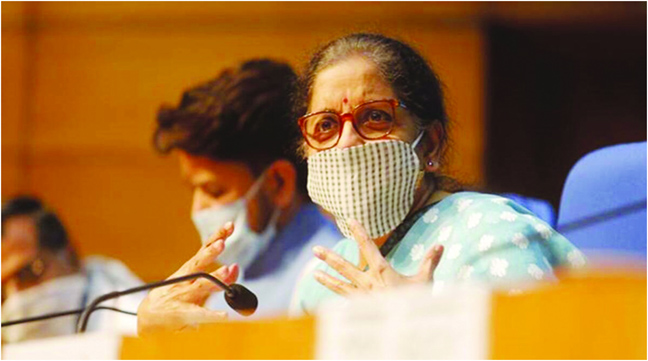New Delhi (TIP): With an aim to incentivise the new optional income tax regime introduced in the last Budget, the government proposes to tweak the list of eligible rebates and exemptions to allow some more categories of financial savings instruments for taxpayers. The emerging view in the discussions in the run-up to the Union Budget is in favour of reducing the tax burden to push more demand by ensuring more disposable income. This is aimed to be done through tax proposals to incentivise the new tax regime rather than any major overhaul in the income tax slabs in the earlier regime, two officials involved in the exercise said. “The new income tax regime did not pick up the way it was anticipated. So there is a consideration to include more exemptions like provident fund in the new income tax option,” a government official told The Indian Express. In several of the representations made before the Budget, demands have been placed to extend the leave travel concession cash voucher scheme, extension of tax benefits for medical expenditure to all taxpayers, a hike in interest rate limits for home loans, and tax concessions for first-time homebuyers in the old tax regime.
PUSHING NEW TAX REGIME
The emerging view in North Block is that the new tax system, announced by Finance Minister in the last Budget, has to be incentivised over the old tax regime. The new regime co-exists with the earlier tax system and was made optional for taxpayers from this fiscal onwards.
However, the government is inclined to offer more benefits under the new regime, sources said. The long-term focus is on eventually moving towards a no-exemption regime – so, the new tax system will get priority and incentives compared to the older regime, an official said.
While presenting the Union Budget for 2020-21 in February last year, Finance Minister Nirmala Sitharaman had announced the new concessional income tax regime, wherein lower tax rates were introduced, but at the cost of foregoing various deductions and exemptions including those currently available on EPF contribution, tuition fee payment, principal and interest outgo on home loans, standard deduction of Rs 50,000, and medical insurance premium, among others. The new tax regime co-exists with the earlier tax system, and was made optional for taxpayers. Under the new regime, an individual is required to pay a 10 per cent tax for income between Rs 5 lakh and Rs 7.5 lakh, and 15 per cent for income between Rs 7.5 lakh and Rs 10 lakh against the existing rate of 20 per cent in the old regime. There is a 20 per cent tax for income between Rs 10 lakh and Rs 12.5 lakh, and 25 per cent for income between Rs 12.5 lakh and Rs 15 lakh against the existing rate of 30 per cent for each of these categories.
Income above Rs 15 lakh is taxed at the rate of 30 per cent in both the regimes. Queries sent to the Finance Ministry by The Indian Express remained unanswered. The Union Budget for 2021-22 will be presented on February 1.
Pre-Budget discussions within the government have also focussed on ensuring lower indirect taxes rather than major changes in direct taxes, so as to protect the government’s own revenues, and spread the benefits wider. Cuts in import duties for sectors where the scheme for production linked incentives has been introduced, could be in the offing. A cut in GST on some items may also be considered later, which will be outside the ambit of the Budget and as per the decision of the GST Council, officials said.
Goods and Services Tax (GST) collections have recorded an improvement in the last few months with a pickup in consumption since the opening up of the economy, whereas direct tax collections continue to be muted with the pandemic having hit incomes. Source: The Indian Express
